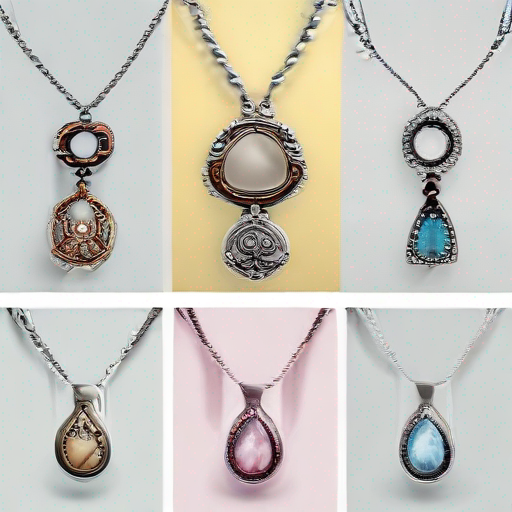Necklaces that Don’t Rust vs Necklaces That Do: The Ultimate Guide

Necklaces That Don't Rust vs Necklaces That Do: The Ultimate Guide
As we dive into the world of jewelry, one crucial aspect to consider is the durability and maintenance requirements of our favorite pieces. Among the many types of necklaces available, some are designed to withstand the test of time, while others may require more attention to preserve their beauty. In this comprehensive guide, we'll explore the differences between necklaces that don't rust and those that do, helping you make an informed decision when selecting your next accessory.
What Causes Rust in Necklaces?
Before diving into the world of necklaces, it's essential to understand what causes rust in the first place. Rust is a natural process that occurs when certain metals come into contact with oxygen and moisture. For necklaces, this means that if a piece contains metal components like copper, iron, or zinc, they can react with water vapor and oxygen to form rust.
Necklaces That Don't Rust: The Pros and Cons
When it comes to necklaces that don't rust, you'll typically find pieces made from materials like:
- Sterling Silver: A popular choice for jewelry, sterling silver is an alloy of 92.5% silver and 7.5% other metals (usually copper). It's resistant to corrosion and can be polished to maintain its shine.
- Titanium: Known for its strength-to-weight ratio, titanium is a versatile metal that can withstand exposure to water without rusting.
- Stainless Steel: With its high chromium content, stainless steel is an excellent option for those who live in humid or coastal environments. It's resistant to corrosion and can be easily cleaned.
Necklaces That Do Rust: The Pros and Cons
On the other hand, necklaces that do rust are often made from materials like:
- Copper: A popular choice for bohemian-inspired jewelry, copper is a naturally occurring metal that can develop a beautiful patina over time. However, it's prone to rusting and may require more maintenance.
- Brass: An alloy of copper and zinc, brass is known for its warm, golden color. While it's not as durable as some other options, it can be polished to maintain its appearance.
Comparing Necklaces That Don't Rust vs Necklaces That Do
| Material | Durability | Maintenance | Aesthetics |
|---|---|---|---|
| Sterling Silver | High | Low | 9/10 |
| Titanium | Very High | Low | 8.5/10 |
| Stainless Steel | High | Low | 8.5/10 |
| Copper | Medium | High | 9.5/10 |
| Brass | Medium | Medium | 8.5/10 |
Key Takeaways
- Sterling Silver: A classic choice for necklaces, sterling silver is a reliable option that requires minimal maintenance.
- Titanium: For those who live in humid or coastal environments, titanium is an excellent choice due to its high corrosion resistance.
- Stainless Steel: Stainless steel offers a sleek, modern look and can be easily cleaned, making it a great option for everyday wear.
- Copper: If you're looking for a unique, bohemian-inspired piece, copper might be the perfect choice. Just be prepared for some maintenance to keep it looking its best.
- Brass: For those who appreciate the warm tones of brass, it can be a beautiful addition to any jewelry collection. However, it may require more attention to maintain its appearance.
Final Thoughts
When choosing between necklaces that don't rust and those that do, consider your lifestyle, personal style, and maintenance habits. While some materials may require more upkeep, they can also add unique character to your jewelry collection.
For more information on necklaces that don't rust vs, visit Rather Pretty to explore their selection of durable and stylish pieces.
[Table]
Remember, with great power comes great responsibility. Take the time to research and understand the pros and cons of each material before making your decision. Happy shopping!

